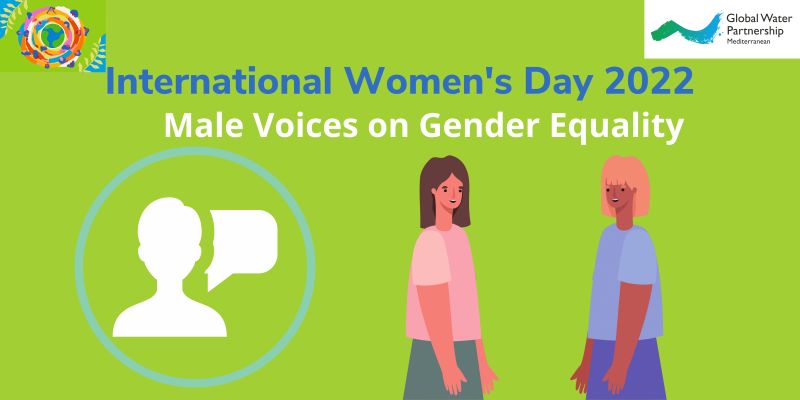Interviews with:
Mr. Bo Hjälmefjord - Regional Programme Manager on Climate and Environment, Swedish Embassy in Amman
Mr. Almotaz Abadi - Water Managing Director, Union for the Mediterranean
Dr. Subhi Samhan - Director of Research and Development, Palestinian Water Authority
Mr.Bassam Jaber - Former Director General in Ministry of Energy and Water, Water Resources Expert, Lebanon
Mr. Arduen Karagjozi - Director, Directory of Strategic Management, Water Resources Management Agency, Albania
Mr. Abderrahman Ouasli - Director of management of the hydraulic sector in the Office of planning and hydraulic balances-Ministry of Agriculture, Hydraulic Resources and Fisheries, Tunisia
Eng. Saad Saleh Abu-Hammour - The Chairman of Jordan Water Company "Miyahuna " and consultant at Potash Company
Mr. Bo Hjälmefjord - Regional Programme Manager on Climate and Environment, Swedish Embassy in Amman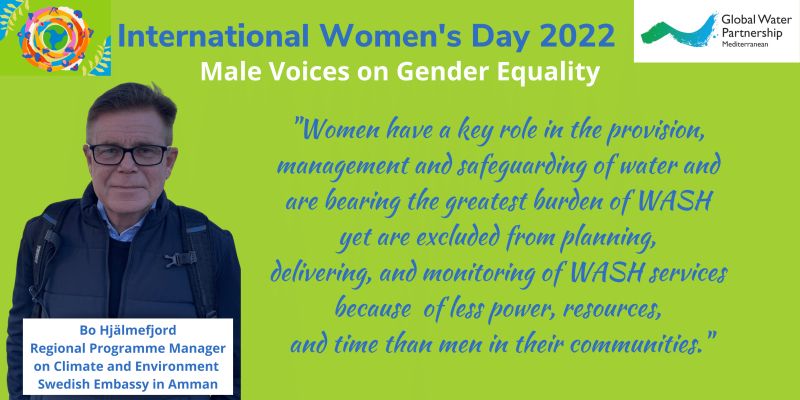
"Sida believes that access to clean WASH is crucial for poverty reduction and for achieving gender equality and empowering women and girls. Women have a key role in the provision, management and safeguarding of water and are bearing the greatest burden of WASH yet are excluded from planning, delivering, and monitoring of WASH services because of less power, resources, and time than men in their communities. Sida therefore believes that it is of outmost importance to promote gender mainstreaming in WASH projects and programmes and to support women’s active participation in planning, designing, implementing and monitoring of interventions targeting water and sanitation. Interventions to promote gender in WASH needs to be done at all levels with regional and transboundary cooperation strongly recommended.
In the new MENA strategy Sida emphasises the importance of sustainable use of transnational natural resources including water and highlights biodiversity as a key development area. Women and youth are recognized as important actors to reach sustainable use of natural resources and in restoring biodiversity. "
Mr. Almotaz Abadi - Water Managing Director, Union for the Mediterranean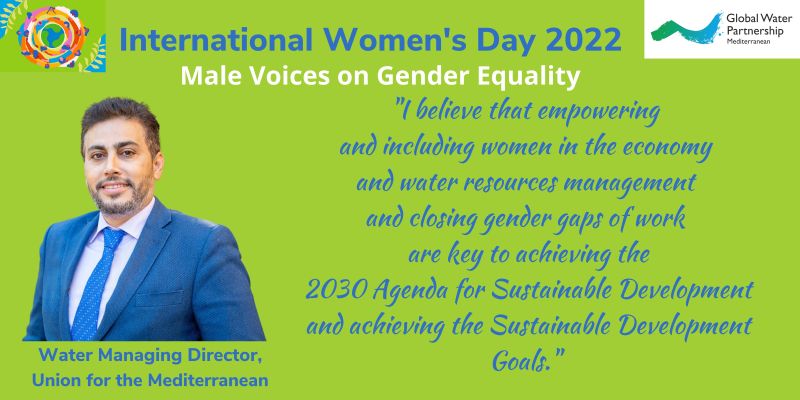
"The UfM’s mission is to enhance regional cooperation, dialogue and the implementation of projects and initiatives with tangible impact on citizens, with an emphasis on young people and women, in order to address the three strategic objectives of the region: stability, human development and integration.
I believe that empowering and including women in the economy and water resources management and closing gender gaps of work are key to achieving the 2030 Agenda for Sustainable Development and achieving the Sustainable Development Goals. Also, without this the UfM will not be able to achieve its objectives.
Gender equality has strong, positive impacts on Gross Domestic Product (GDP) per capita, which grows over time. By 2050, improving gender equality would lead to an increase in EU (GDP) per capita by 6.1 to 9.6%, which amounts to €1.95 to €3.15 trillion. In our region we are prone to exacerbating existing inequalities and adversely impacting women’s roles and position within the home and community, unless specific and well-targeted measures are put in place, such as the measures that the UfM Water Policy framework of action is promoting for a holistic and integrated approach towards society and focusing on entrepreneurship in the Water sector for women and youth.
I would like to seize this opportunity to warmly thank and salute all the UfM water community around the Mediterranean including GWP-Med, as we put a good example and projects that illustrate the way to overcome the mentioned challenges faced by women and empowering them across the Mediterranean region to advance skills and strategic partnerships."
Dr. Subhi Samhan - Director of Research and Development, Palestinian Water Authority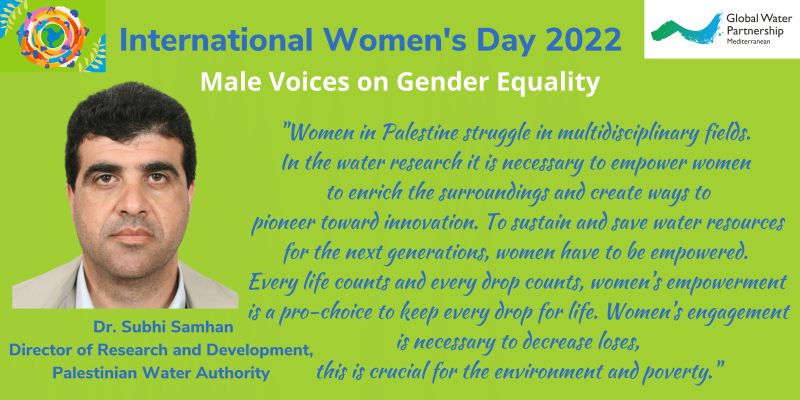
"Women in Palestine struggle in multidisciplinary fields, In the water research it is necessary to empower women to enrich the surroundings and create ways to pioneer toward innovation.
To sustain and save water resources for the next generations, women have to be empowered. Every life counts and every drop counts, women’s empowerment is a pro-choice to keep every drop for life.
Women’s engagement is necessary to decrease loses, this is crucial for the environment and poverty."
Mr.Bassam Jaber - Former Director General in Ministry of Energy and Water, Water Resources Expert, Lebanon
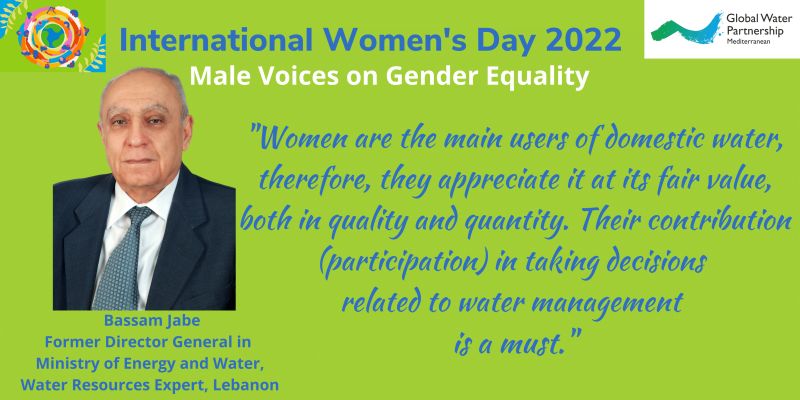
"Women are the main users of domestic water, therefore, they appreciate it at its fair value, both in quality and quantity. Their contribution (participation) in taking decisions related to water management is a must."
Mr. Arduen Karagjozi - Director, Directory of Strategic Management, Water Resources Management Agency, Albania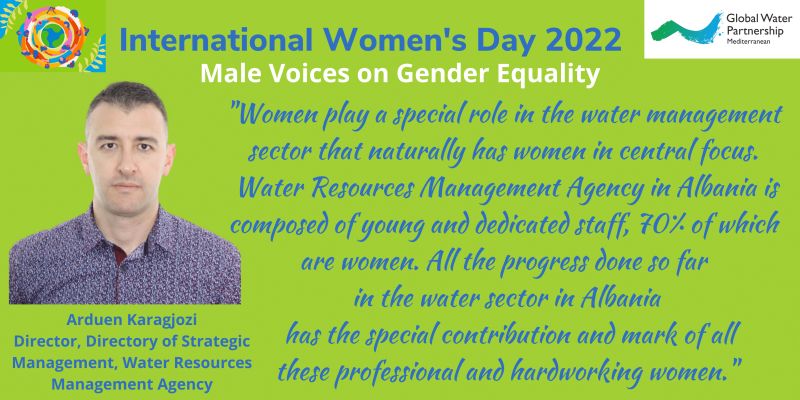
"Women play a special role in the water management sector that naturally has women in central focus. Water Resources Management Agency in Albania is composed of young and dedicated staff, 70% of which are women. All the progress done so far in the water sector in Albania has the special contribution and mark of all these professional and hardworking women."
Mr. Abderrahman Ouasli - Director of management of the hydraulic sector in the Office of planning and hydraulic balances-Ministry of Agriculture, Hydraulic Resources and Fisheries, Tunisia
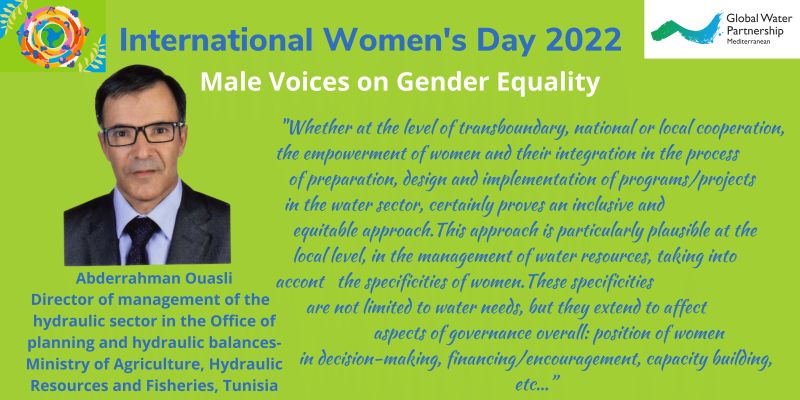
"Whether at the level of transboundary, national or local cooperation, the empowerment of women and their integration in the process of preparation, design and implementation of programs/projects in the water sector, certainly proves an inclusive and equitable approach. This approach is particularly plausible at the local level, in the management of water resources, taking into account the specificities of women. These specificities are not limited to water needs, but they extend to affect aspects of governance overall: position of women in decision-making, financing/encouragement, capacity building, etc…”
Eng. Saad Saleh Abu-Hammour - The Chairman of Jordan Water Company "Miyahuna" and consultant at Potash Company, Jordan
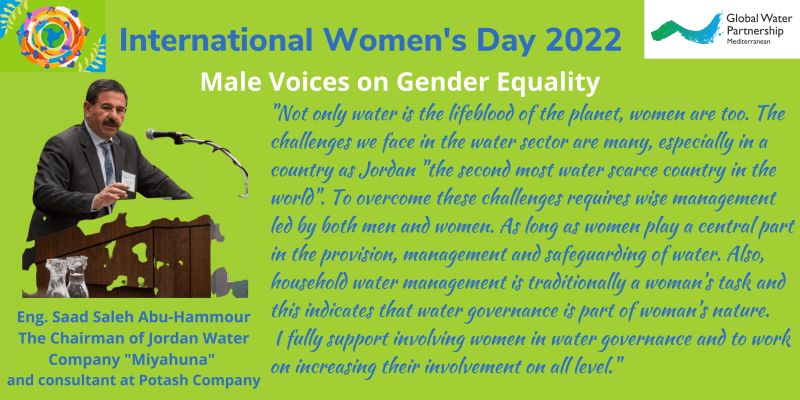
"Not only water is the lifeblood of the planet, women are too. The challenges we face in the water sector are many, especially in a country as Jordan "the second most water scarce country in the world". To overcome these challenges requires wise management led by both men and women. As long as women play a central part in the provision, management and safeguarding of water. Also, household water management is traditionally a woman´s task and this indicates that water governance is part of woman's nature. I fully support involving women in water governance and to work on increasing their involvement on all level."
